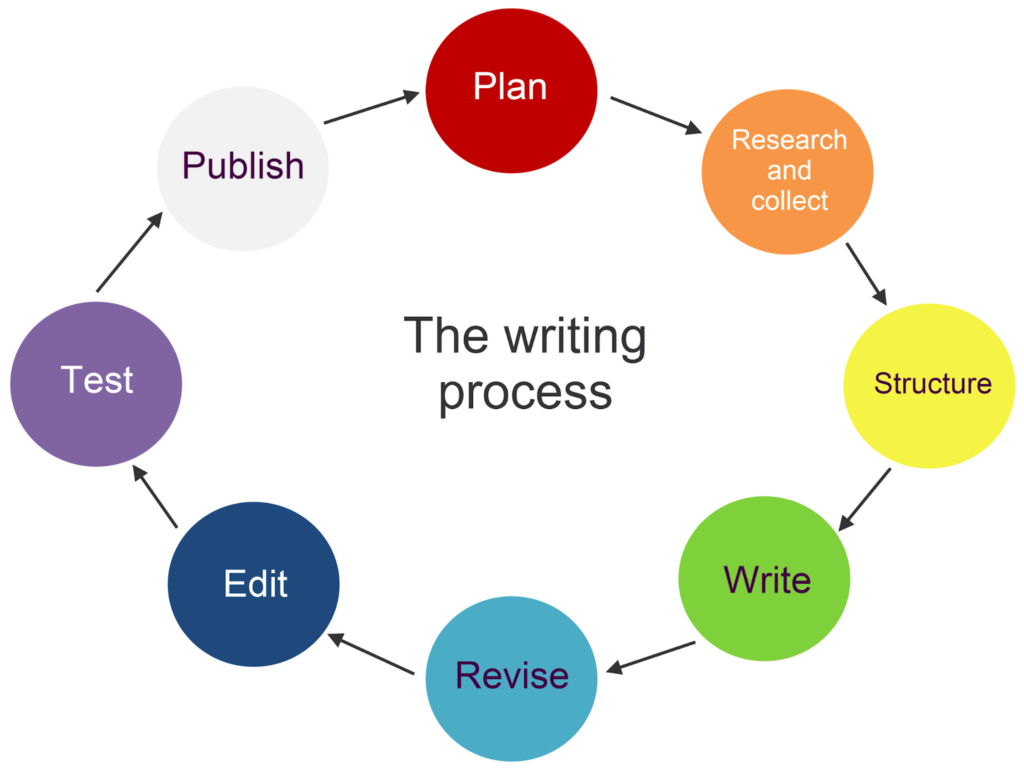The 5 Biggest Content Writing Mistakes You Can Easily Avoid

Table of Contents
- 5 Biggest Content Writing Mistakes
- Poor Research
- Overlooking Search Engine Optimization
- Lack of Targeted Audience
- Deviating from the Point
- Skipping Proofreading
- How to Avoid Mistakes While Writing – General Rules
- Conclusion
- Key Takeaways
- FAQs
Every business with an online presence nowadays relies on good content writing to connect with its audience. That’s why the process of crafting content that hits the mark has to be well-designed and amenable to modifications.
Being a good writer isn’t the only hallmark of producing great content. It depends on the writer’s ability to continuously improve on their ideas, flaws, and skills in the face of challenges.
Here, we are discussing the five biggest content writing mistakes that writers often make. And we have curated tips on how to avoid writing errors to make your content near perfect.
5 Biggest Content Writing Mistakes You Should Never Make

Every writer faces challenges while writing and is prone to err as well. Some common errors in writing include a lack of thorough research and a proper understanding of the intended audience. Up next are five major writing errors that you must look out for:
1. Poor research
Even if you are fairly certain about a topic, conducting extensive research before writing on it is always crucial. This helps you exercise a fair judgment on the outline of their article.
Having first-hand knowledge and in-depth research leads to the availability of accurate facts, which can help avoid content errors in writing. The research will also familiarize you with any recent developments that have taken place in the field.
Readers may also be slightly knowledgeable on the topics discussed. Therefore, having well-defined, research-driven content will leave no room for doubts or questions.
2. Overlooking search engine optimization
While making well-structured informative content, it is easy to lose track of optimizing it for the search engines. SEO is crucial because it helps your content reach target users and gain maximum visibility online. SEO-optimized writing covers different aspects like the placement of keywords, internal and external links, images, headings, adding meta descriptions, and much more.
Sometimes, your client might provide some pre-specified SEO guidelines for the writing piece. However, as a well-informed writer, it’s advisable to keep abreast of the fundamentals of SEO writing. You can do so by auditing some courses or reading relevant resources online.
3. Lack of targeted audience
Content writing without a specific audience in mind is akin to letter writing without a recipient. It is essential when writing any content that readers can connect to it and understand it easily.
Without a proper audience in mind, the content cannot be outlined to meet the needs of your readers, making it irrelevant. This results in fewer readers for the content as they don’t connect meaningfully to it.
Therefore, this is one of the most common errors in writing that can be avoided by taking time to recognize the potential readers for the content that is being written.
4. Deviating from the point
Out of all the types of content writing errors, missing the point is the easiest one to make. While typing, one can get carried away in metaphors and jargon and lose the meaning they intended to convey initially.
Stretching out a point can also make it tiresome for the readers. Thus it is best to keep one’s sentences and points short and crisp. It grabs and holds readers’ attention.
So if your first draft is dotted with fluff and unnecessary information, it is wise to cut it short, making it more appealing to the targeted audience. Write sentences that are to the point, short and precise, while conveying the point.
5. Skipping proofreading
This is one of the cardinal sins (hyperbole!) that can be committed by a content writer. It is crucial that you always double-check the content you have written after its completion.
If the content is filled with grammatical inconsistencies and spelling errors, it could take away from its authenticity and confuse the readers. This can easily be avoided with a little patience and re-reading.
The time spent proofreading makes a world of difference to the content you have written, changing it from error-filled to a well-written piece of work. If you want to go the extra mile, you can also take the help of a professional proofreader.

How to Avoid Mistakes While Writing: General Rules
Here are some thumb rules that can help a content writer avoid some common errors in writing:
- Carry out thorough research before writing, as this helps you structure the content meaningfully and gives the discussion a natural flow from one topic to the next.
- Outline the content based on the requirement by making headings, subheadings, and pointers first. Next, you can jot down the basic research material to build upon.
- Thoroughly research your target audience before writing. You can take the help of customer personas or surveys to understand your audience better.
- When optimizing for SEO, consider all aspects like density and placement of keywords, relevant links and anchor text, non-copyrighted images, meta descriptions, and headings.
- Make sure the beginning of the content written is eye-catching, with good titles and an introduction. However, do not overdo the casual vibe as this takes away the content’s authenticity.
- If required, add a call to action, but ensure that it does not come across as blatant advertising as readers will find this off-putting.
- Lastly, always take the time to proofread and double-check the content to avoid the most common errors in writing and correct them if made!
Conclusion
This article emphasizes the five major content writing mistakes, ranging from lack of proper research to not proofreading. These common errors in writing can be avoided by following the general rules mentioned to make your writing effortlessly precise.
Key Takeaways
- Always carry out extensive research on the topic to be written on, as this helps the writer structure their article better and provide a lot more data-driven information and facts.
- Plan an outline for the article with titles, headings, and subheadings beforehand, making the work easier to navigate.
- Thoroughly understand your target readership before writing. This will make your writing relevant and also cater to the needs of the audience.
- SEO is important and has to be all-encompassing. A writer needs to have a basic understanding of SEO to make the content searchable.
- Always proofread the final content to check for any mistakes and corrections required. Take some time away and read the content with a fresh perspective, as one can identify any flaws more quickly.

FAQs
Some common content writing mistakes include lack of research, overlooking SEO, lack of target audience knowledge, and less time spent on proofreading. If these mistakes are avoided, the content will be more relevant, search-friendly, and readable.
This is a case of ‘practice makes perfect. Simply write every day with good research-backed content that is informative and precise. Always double-check the content you have written. Moreover, reading good pieces of writing from top blogs always helps you improve.
Written content is successful when the targeted audience can easily find it and connect with it. This is where good writing and optimal inclusion of keywords for SEO come in as a priority.
Read as it helps one formulate ideas better. Once there is an idea in mind, do due diligence on it by thoroughly researching it. Once a good outline for the article is developed, start writing and proofreading at the end.
Content ideas often start as thoughts or questions. Reading and watching informative videos, blogs, and listening to podcasts go a long way in helping to create good content ideas.
Latest Blogs
Explore how Google’s 2025 AI search updates triggered ranking chaos. Learn actionable strategies to adapt your SEO for AI Overviews, zero-click searches, and SERP volatility. Stay ahead now.
Learn how to rank on AI search engines like ChatGPT, Perplexity, and Gemini by optimizing your content for authority, structure, and relevance. Stay ahead in AI-driven search with this strategic guide.
Explore the best healthcare SEO services for your medical practice. Improve online visibility and effectively reach more patients in need of your services.
Get your hands on the latest news!
Similar Posts

B2C Marketing
5 mins read
Top Choices for Best Content Marketing Services in B2B Industries

Artificial Intelligence
5 mins read
How A Lead Generation Specialist Can Use AI-Powered Content Funnels to Drive Conversions

Artificial Intelligence
4 mins read